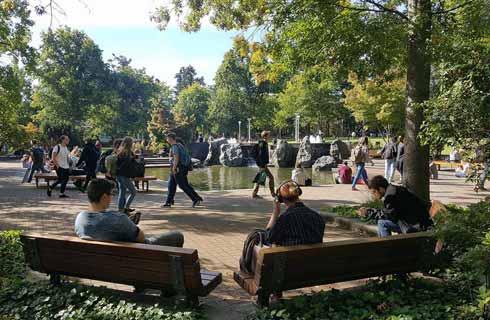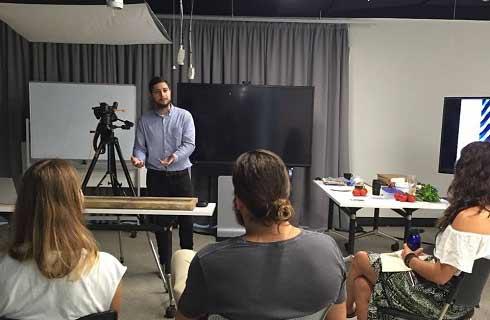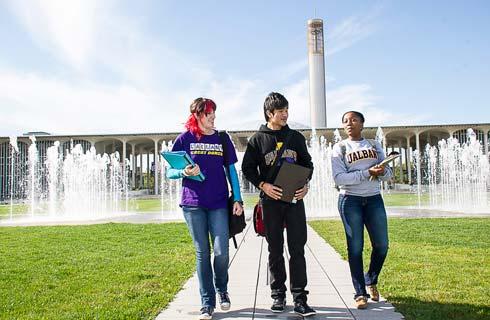BSc (Honours) Anthropology

学历文凭
Bachelor Degree with Honours

专业院系
Life Sciences

开学时间

课程时长

课程学费

国际学生入学条件
a pass in one subject at GCE Advanced Level plus (a) passes in two distinct subjects at GCE Advanced Subsidiary Level, or (b) a Vocational A-Level Single Award, or (c) two Vocational A-Level part Awards,
a Vocational A-Level Double Award, or
a Vocational A-Level Single Award plus (a) two Vocational A-Level part Awards, or (b) passes in two distinct subjects at GCE Advanced Subsidiary Level, or
a BTEC National Certificate or Diploma, or
a Scottish Certificate of Education with (a) passes in five subjects, including at least three at Higher grade, or (b) passes in four subjects all at Higher grade or New Higher grade, or
the full Diploma of the International Baccalaureate, or
an Irish Leaving Certificate with passes in four subjects at Grade C at the Higher level.
Year 1 entry: 112 UCAS points (or equivalent)
We welcome applications from students studying T-Levels.
For all courses we also accept a wide range of other qualifications and experience. Contact us to find out more.
When we consider applications to study with us, we form a complete view of your achievements to date, and future potential, and can offer flexibility in entry requirements. Find out more about our Contextual Offer scheme.
Specific Entry Requirements:
GCSE (or equivalent) requirement: Maths, Science or Biology, Grade C / 4.
GCSE- Grade C or above in English Language or 4 in the GCSE 1–9 grading scale
International Baccalaureate- SL grade 4 or HL grade 3 (Language A - first language) or SL grade 6 or HL grade 5 (Language B – language acquisition)
TOEFL IBT- 80 overall with a minimum of 17 in Listening and Writing, 18 in Reading and 20 in Speaking, IELTS- 6.0 overall with a minimum 5.5 in each component
IDP—雅思考试联合主办方

雅思考试总分
6.0
- 雅思总分:6
- 托福网考总分:80
- 托福笔试总分:160
- 其他语言考试:PTE- 54 average with 51 in each component
CRICOS代码: L600
申请截止日期: 请与IDP联系 以获取详细信息。
课程简介
相关申请
 预科
预科 奖学金
奖学金 实习机会
实习机会 在校学习
在校学习 跨境学习
跨境学习 校园授课-线上开始
校园授课-线上开始 在线/远程学习
在线/远程学习
开学时间&学费
学费信息仅供参考,请与IDP联系以获取详细信息
| 开学时间 | 时长 | 学费 | 地点 |
|---|
关于罗汉普顿大学

罗汉普顿大学是一个历史悠久的现代学术团体,位于伦敦西南部,因高标准的教学和研究而国际声誉日盛。地理位置是罗汉普顿大学的一个关键资产。大学校园坐落在54英亩的景观公园内。这个有着178年历史的教育机构设施由林荫大道和开放绿地环绕,学生从伦敦市中心乘坐公共交通工具只需30分钟即可到达。传统大学校园的社区氛围,邻近世界最具活力城市之一,确实两全其美。大学校园拥有学生获得成功所需的所有设施,同时也提供了一个生活和工作的安全社交场所。历史建筑坐落在先进设施旁边。演讲厅和计算机实验室旁边是舞蹈和剧院场馆,还有体育设施,包括向所有学生开放的设备齐全的体育馆。大学提供广泛的室内和室外社交空间、餐饮、校内酒吧和各种无酒类饮品的场所。罗汉普顿大学学生会举办现场音乐活动、每周市场和俱乐部之夜,丰富了大学的社交活动。学生可申请一百多种各类本科和研究生学位课程,以及一些博士学习项目和研究职位。罗汉普顿大学在其所有院系的世界领先研究方面声誉卓著,教学人员非常熟悉各自的领域,在为学生提供专业知识方面拥有丰富的教学经验。罗汉普顿大学在研究方面的专长及其靠近伦敦的地理位置为学生在大学期间的见习和实习创造了大量机会,大学的赞助商网络和校友网络也为毕业生提供了进一步的支持。
本校相关课程

MA/PGDip Theology and Religious Studies
学历文凭
Masters Degree (Taught)
开学日期
课程费用总额


MPhil/PhD Psychology
学历文凭
Ph.D.
开学日期
课程费用总额


MPhil/PhD History and Classics
学历文凭
Ph.D.
开学日期
课程费用总额


MPhil/PhD Education
学历文凭
Ph.D.
开学日期
课程费用总额


MbyRes Ecology, Evolution and Behaviour
学历文凭
Masters Degree (Research)
开学日期
课程费用总额


MPhil/PhD Drama, Theatre and Performance
学历文凭
Ph.D.
开学日期
课程费用总额

其他相关课程

国家土著研究中心哲学博士
 澳大利亚国立大学
澳大利亚国立大学学历文凭
Ph.D.
开学日期
课程费用总额


芬纳环境与社会学院哲学硕士
 澳大利亚国立大学
澳大利亚国立大学学历文凭
Masters Degree (Research)
开学日期
课程费用总额


社会科学学士(荣誉学位)
 纽卡斯尔大学
纽卡斯尔大学学历文凭
Bachelor Degree with Honours
开学日期
课程费用总额


哲学博士(人文,艺术和社会科学)
 斯威本科技大学
斯威本科技大学泰晤士高等教育世界大学排名:282
学历文凭
Ph.D.
开学日期
课程费用总额


国际发展研究生文凭
 乐卓博大学
乐卓博大学泰晤士高等教育世界大学排名:267
学历文凭
Graduate Diploma
开学日期
课程费用总额


土著哲学博士
 南十字星大学
南十字星大学泰晤士高等教育世界大学排名:456
学历文凭
Ph.D.
开学日期
课程费用总额










